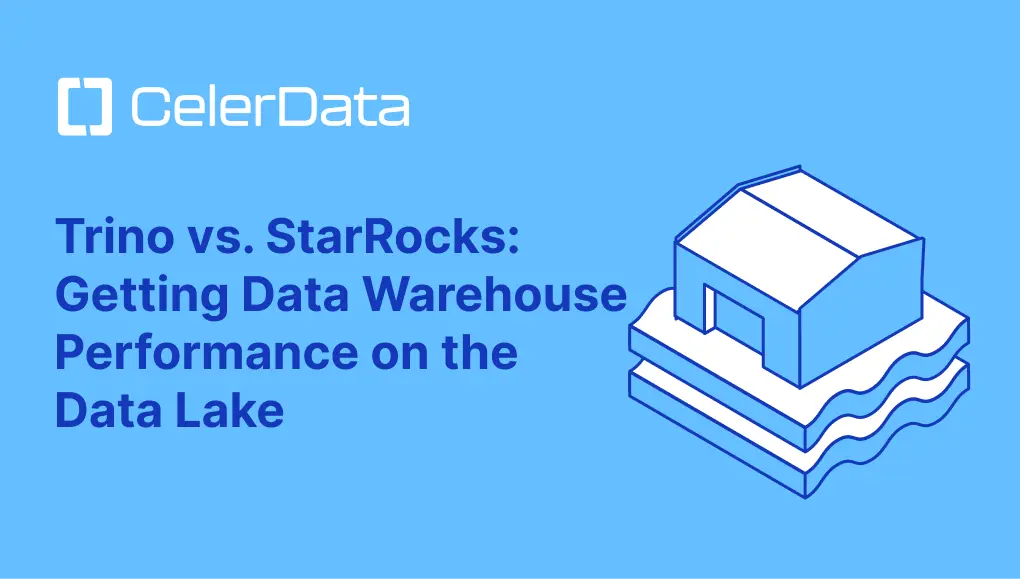
Choosing the Right Data Repository for Your Business

Join StarRocks Community on Slack
Connect on SlackUnderstanding Data Repositories
Definition and Importance
What is a Data Repository?
A data repository serves as a centralized location where you store, organize, and manage data. It acts as a large database infrastructure, often comprising several databases, to collect, manage, and store data sets for analysis, sharing, and reporting. This system provides a unified view of data, making it easier for you to manage and analyze information. By storing all your data in one place, a data repository simplifies access and management, enabling you to integrate data from various sources. This integration can significantly enhance decision-making and operational efficiency.
Why Businesses Need Data Repositories
Businesses need data repositories to maintain the quality and integrity of their data. These repositories ensure that there is no missing information or duplication when you make a data query. The accessibility of a data repository helps achieve data democratization within your organization. This means every user can access the data they need, fostering sufficient data literacy and comfort in gaining insights. By using a data repository, you can streamline operations, improve productivity, and make informed decisions based on accurate data.
Types of Data Repositories
Funder-Supported Repositories
Funder-supported repositories are designed to store data generated from projects funded by specific organizations. These repositories ensure that data is preserved and accessible for future research and analysis. They often come with specific guidelines and requirements for data sharing and management, ensuring compliance with funding bodies' standards.
Discipline-Specific Repositories
Discipline-specific repositories cater to particular fields or areas of study. They store data relevant to specific disciplines, such as social sciences, biology, or engineering. By focusing on a particular field, these repositories provide tailored data management and sharing solutions, enhancing the relevance and usability of the data for researchers and professionals in that discipline.
Generalist Repositories
Generalist repositories offer a more flexible approach, accommodating data from various fields and disciplines. They provide a platform for storing and sharing diverse datasets, making them suitable for businesses and researchers with interdisciplinary data needs. These repositories support a wide range of data types and formats, facilitating broader data sharing and collaboration.
Examples of Each Type
-
Funder-Supported Repositories: The National Institutes of Health (NIH) Data Sharing Repository supports data from NIH-funded research projects.
-
Discipline-Specific Repositories: CESSDA provides integrated data services specifically for the social sciences.
-
Generalist Repositories: Figshare allows researchers to preserve and share various research outputs, including datasets, images, and videos.
By understanding these types of data repositories, you can choose the one that best aligns with your business needs and data management goals.
Key Characteristics of Data Repositories
Understanding the key characteristics of data repositories helps you make informed decisions about which repository best suits your business needs. These characteristics ensure that your data is managed effectively, enhancing its usability and accessibility.
FAIR Principles
The FAIR principles guide you in managing your data to ensure it is Findable, Accessible, Interoperable, and Reusable. These principles are essential for maximizing the value of your data.
Findability
You need to ensure that your data is easy to locate. This involves using metadata and identifiers that make your data searchable. A well-organized repository enhances findability, allowing you to quickly access the information you need.
Accessibility
Your data should be accessible to those who need it while maintaining security. This means implementing access controls and authentication measures. By ensuring accessibility, you enable efficient data sharing and collaboration within your organization.
Interoperability
Interoperability allows your data to integrate with other systems and applications. This involves using standardized formats and protocols. When your data is interoperable, you can combine it with other datasets, enhancing its value and utility.
Reusability
Reusability ensures that your data can be used for future research and analysis. This requires clear documentation and licensing. By making your data reusable, you maximize its potential and contribute to ongoing innovation.
Access Policies
Access policies determine who can view and use your data. Understanding these policies helps you manage your data effectively and ensure compliance with regulations.
Open Access
Open access allows anyone to view and use your data. This approach promotes transparency and collaboration. By adopting open access, you can share your data with a broader audience, fostering innovation and knowledge sharing.
Restricted Access
Restricted access limits data availability to specific users or groups. This approach protects sensitive information and ensures compliance with privacy regulations. By implementing restricted access, you safeguard your data while still enabling necessary access.
Support Services
Support services provide you with the assistance you need to manage your data effectively. These services enhance your ability to use and maintain your data repository.
Technical Support
Technical support helps you address any issues with your data repository. This includes troubleshooting, maintenance, and updates. With reliable technical support, you can ensure your data repository operates smoothly and efficiently.
User Training
User training equips you with the skills needed to manage and use your data repository. This includes workshops, tutorials, and documentation. By investing in user training, you empower your team to make the most of your data resources.
By understanding these key characteristics, you can choose a data repository that aligns with your business goals and enhances your data management capabilities.
How to Choose the Right Data Repository
Selecting the right data repository is crucial for your business. It impacts how you manage, analyze, and secure your data. To make an informed choice, you need to consider several factors that align with your business needs.
Identifying Business Requirements
Before choosing a data repository, you must identify your business requirements. This step ensures that the repository you select will meet your specific needs.
Data Volume and Type
First, assess the volume and type of data your business handles. Large volumes of data require repositories with significant storage capacity. If your data includes various types, such as structured and unstructured data, you need a repository that can accommodate this diversity. Understanding your data's nature helps you choose a repository that supports efficient data management and analysis.
Security and Compliance Needs
Security is paramount when dealing with sensitive data. You must ensure that the repository you choose offers robust security features. Consider compliance requirements relevant to your industry. For instance, if you handle NIH data, you must adhere to NIH data management guidelines. A repository that meets these standards will help you maintain data integrity and protect your business interests.
Evaluating Repository Features
Once you've identified your business requirements, evaluate the features of potential data repositories. This evaluation will guide you in selecting a repository that enhances your data management capabilities.
Storage Capacity
Storage capacity is a critical feature to consider. Ensure that the repository can accommodate your current data volume and has the scalability to grow with your business. Adequate storage capacity prevents data loss and ensures seamless data access.
Integration Capabilities
Integration capabilities determine how well the repository works with your existing systems. A repository that integrates smoothly with your application stack facilitates seamless data flow. This integration is essential for efficient data management and decision-making processes.
Cost Considerations
Cost is an important factor in choosing a data repository. Evaluate the cost structure of potential repositories, including any publication charges. Consider both initial costs and ongoing expenses. A cost-effective repository aligns with your budget while providing the necessary features for effective data management.
By carefully considering these factors, you can choose a data repository that meets your business needs and enhances your data management strategies. This choice will significantly impact your ability to manage, analyze, and secure your data effectively.
Comparison of Popular Data Repositories
When comparing and choosing a research repository, it's essential to understand the unique features and suitability of each option for your business needs. This section provides a detailed repository comparison of three popular research repository tools: DRUM, Figshare, and Dataverse. Each of these repositories offers distinct advantages and capabilities that cater to different research data management requirements.
DRUM
Unique Features
DRUM, or the Data Repository for the University of Minnesota (UMN), stands out with its open access, restricted, and embargo options. It allows you to apply standard licenses and add custom terms of data access, making it a versatile choice for managing sensitive data. DRUM supports a wide range of data types and offers robust repository tools for data sharing and preservation. As part of the UMN data repository memberships, DRUM provides comprehensive research data services to ensure compliance with data policy requirements.
Suitability for Business Needs
DRUM is particularly suitable for businesses that require a flexible research repository with strong data policy controls. Its ability to handle sensitive data and offer various access options makes it ideal for organizations with specific data sharing and management needs. The repository's integration with UMN's research data services ensures that you have access to expert guidance and support throughout your data management journey.
Figshare
Unique Features
Figshare is a generalist repository that accepts any scholarship from any discipline. It offers an intuitive platform for storing and sharing diverse research outputs, including datasets, images, and videos. Figshare's repository tools include the ability to create DOIs (Digital Object Identifiers) for your research data, enhancing its visibility and citation potential. The platform's user-friendly interface and robust data sharing capabilities make it a popular choice among researchers.
Suitability for Business Needs
Figshare is well-suited for businesses and researchers looking for a generalist repository that supports interdisciplinary research. Its flexibility and ease of use make it an excellent choice for organizations that need to manage and share a wide variety of research data. Figshare's open access model promotes transparency and collaboration, allowing you to reach a broader audience and foster innovation.
Dataverse
Unique Features
Dataverse is an open-source web application designed to share, preserve, cite, explore, and analyze research data. It offers a comprehensive set of repository tools for managing research data, including metadata management, version control, and data citation. Dataverse's modular architecture allows you to customize the repository to meet your specific research needs, making it a powerful tool for data management and sharing.
Suitability for Business Needs
Dataverse is ideal for businesses and researchers seeking a customizable research repository with advanced data management capabilities. Its open-source nature allows you to tailor the repository to your organization's unique requirements, ensuring that you have the tools necessary to manage and share your research data effectively. Dataverse's focus on data preservation and citation makes it a valuable asset for organizations committed to maintaining the integrity and accessibility of their research data.
By understanding the unique features and suitability of DRUM, Figshare, and Dataverse, you can make an informed decision about which research repository best aligns with your business needs. This repository comparison highlights the strengths of each option, providing you with the insights needed to optimize your research data management strategies.
Conclusion
Choosing the right data repository is vital for your business's success. It ensures effective data management and enhances decision-making. You must consider several factors when selecting a repository. These include scalability, compatibility, user-friendliness, data security, and pricing. Each type of repository offers unique features that cater to different research needs. By understanding these characteristics, you can make informed decisions. Regularly evaluate and adapt your data management strategies. This approach ensures your repository remains aligned with your business goals. Embrace best practices to maintain data integrity and maximize the value of your research repositories.

.webp)

